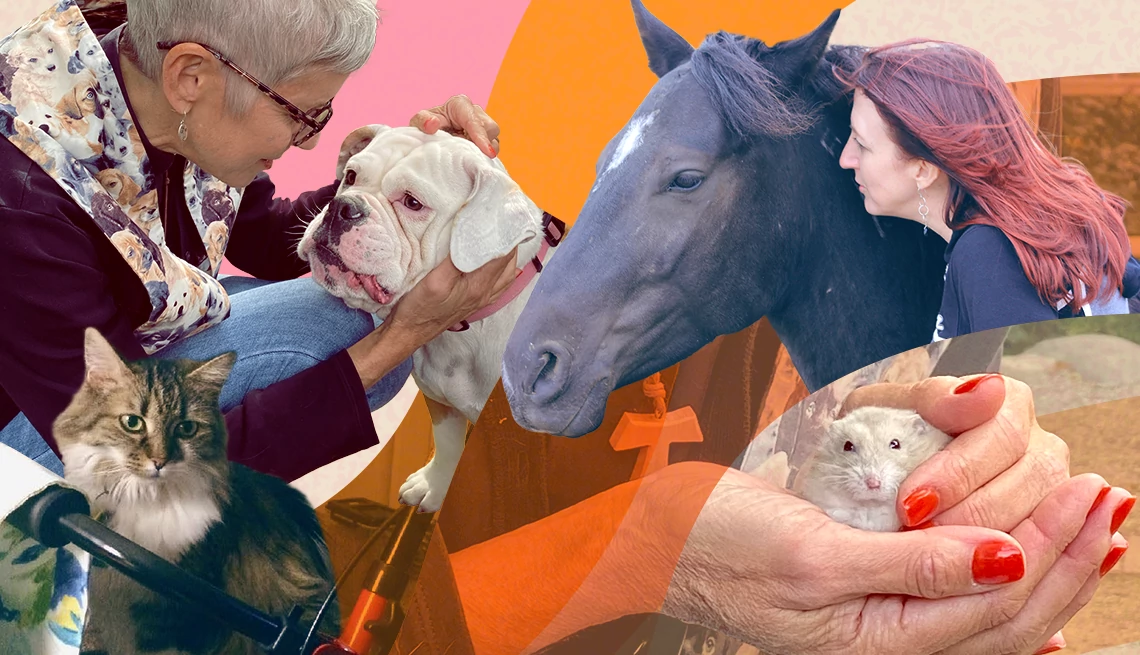AARP Hearing Center


When Elaine Hutchison’s 11-year-old French bulldog, Sundae, died in January 2023, she lost her dearest companion and "the only family I [was] close to." At the time, she could think of just one person who would be able to listen without judgment to the depth of her grief — a friend who works as an animal chaplain.
Animal chaplains not only use a variety of spiritual practices, rituals and ceremonies to honor sick and dying animals — much like church chaplains do with people — but also offer a safe space for pet owners to process complex emotions when coping with their loved one’s illness or death.
"An animal chaplain can value the life of the animal you loved with you," says Hutchison, 69, a ghostwriter living in Arlington, Washington. She was so moved by her experience that she became ordained as an animal chaplain this past June.
Pet loss is difficult for older adults
Fifty-five percent of adults ages 50 to 80 have a pet, according to the 2024 National Poll on Healthy Aging, with more than half owning multiple pets. More than three-quarters of pet owners report that their pets reduce stress, and almost as many credit them with providing a sense of purpose.
When a pet dies, research shows it can negatively impact older adults' health. In a 2023 study, 38 percent of older participants reported a decrease in physical activity, and 47 percent said that their emotional health declined following their pet's death.
In a 2021 study published in the journal BMC Geriatrics, researchers — hoping to develop a greater understanding of the impact of companion animal death on older women living alone — highlighted how important it is for their own well-being that they have emotional support and grief rituals when a pet dies.
Companion animals are more than 'just a pet'
Rob Gierka and Karen Duke of Raleigh, North Carolina, founded and run Pet Chaplain to offer information and services for pet grief. "The cultural story we have is, 'It's just an animal, it's just a pet. You can just get another one and you’ll feel better.' And that really can't be further from the truth of what people actually experience," says Duke, who uses the term "veterinary chaplain." "Every pet is unique. They're not easily replaced. And we need to honor that relationship by acknowledging and honoring the grief that people feel."
And even if they do have spiritual guidance as a regular part of their human lives, it doesn't always translate when a pet passes, Duke says. "Some people may go to their minister looking for relief and be told that their pet doesn't have a soul and won’t go to heaven. That's certainly very off-putting and disenfranchising."






































































You Might Also Like
AARP Smart Guide to Pet Adoption
33 tips for finding a new furry best friend after 50
How to Help Pets Through Grief
Here are practical tips to assist your furry friends while they’re depressed
The Ultimate Guide to Dog Food
Should you feed your dog human food? What foods are toxic? Does kibble provide enough nutrition? Experts weigh in on your most pressing dog nutrition questions